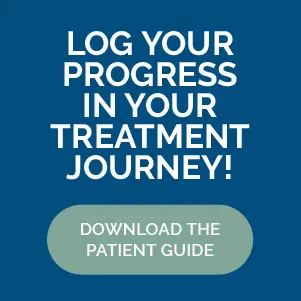What Are the Contraindications for Pulmonary Rehabilitation?
The initial evaluation will establish willingness to participate in the rehabilitation process and review your entire medical history. There are certain conditions that may make the successful completion of a pulmonary rehabilitation program unlikely. Some of these issues can be addressed as part of a comprehensive program (as we’ll discuss later in this blog), but some may require further medical intervention prior to starting the pulmonary rehabilitation program. And, in some cases, certain medical issues are considered more emergent and will result in the inability to partake in pulmonary rehabilitation at all.
- Some potential contraindications to pulmonary rehab include:
- Ischemic heart disease or active chest pain, called angina
- Acute congestive heart failure
- Severe pulmonary hypertension
- Severe aortic stenosis
- Significant kidney dysfunction or renal failure
- Unstable diabetes
- Metastatic cancer
- Severe cognitive deficits
- Significant psychiatric conditions
The decision to provide or withhold pulmonary rehab should always be based on a thorough, individualized assessment by multiple healthcare providers to address all aspects of the person. Oftentimes, people may present with one or more of the above conditions but, with additional treatment and/or medical management, they are able to participate in pulmonary rehabilitation.
Health Concerns That Can Interfere with Pulmonary Rehab
Now that we’ve reviewed health issues that may result in your inability to attend pulmonary rehabilitation, let’s discuss some other health conditions that may interfere, but don’t necessarily mean you cannot be successful in a pulmonary rehabilitation program. Many of these health conditions are common and, with the right attention to detail from your healthcare providers, will not inhibit your ability to participate in pulmonary rehabilitation. Many pulmonary rehabilitation teams have various healthcare providers from different backgrounds to help assess you in many different manners to support your success. Now, let’s discuss some other health conditions and how we can manage them for best success in pulmonary rehabilitation.
Heart Disease
Many pulmonary rehabilitation healthcare providers may also be familiar with common heart issues. As long as your heart condition is stable, pulmonary rehabilitation can be safely performed by following additional guidelines for exercise intensities that are appropriate for both your heart and lungs.
Kidney Disease
Often, kidney disease does not pose a problem with participation in pulmonary rehabilitation. Even patients who are on kidney dialysis can safely partake in a modified plan which usually includes lower intensity exercises completed on the days opposite of dialysis.
Cancer
A history of cancer or active cancer can sometimes cause difficulties with exercise tolerance. Many patients who are on chemotherapy report fatigue and nausea. With careful planning from your pulmonary rehabilitation team, they can attempt to give you a program that is meaningful but also does not worsen your symptoms while you’re undergoing cancer treatments.
Diabetes
Diabetes is a disease that can be better managed with attention to your diet and enrolling in a regular exercise program. Much like other diagnoses, with special considerations and close glucose monitoring, exercise can be very beneficial and safe for those people who also have diabetes.
Arthritis
Arthritis is another common diagnosis that effects many people. Knee, hip and, back arthritis are some of the most common locations, which can lead to pain, decline in range of motion, and difficulty with walking. The great news is that exercise has been shown to improve arthritis symptoms when it is performed in accordance with the recommendations of healthcare professionals. Again, with proper examination and thought into program modifications, even with arthritis limitations, people can benefit from pulmonary rehabilitation.
Fibromyalgia
Fibromyalgia is a chronic pain syndrome for which there is currently no cure. However, there is good research showing how physical therapy can help abate symptoms of fibromyalgia. If the pulmonary rehabilitation program includes pulmonary physical therapy, the physical therapist can work with patients to reduce stiffness, improve posture, and provide appropriate exercise to benefit both the fibromyalgia and lung condition.
Balance Issues
Many people have issues with balance. Some balance difficulties occur with aging while other balance issues may be related to specific disease processes. No matter what the cause of a balance disturbance, pulmonary rehabilitation can be helpful. A pulmonary physical therapist will assess for the causes of balance issues and adjust treatment to help build strength and specific exercises to help improve balance.
Mental Health Issues
Anxiety and depression are two diagnoses that people with lung conditions may experience. Shortness of breath and inability to do enjoyable activities may lead some people to suffer from anxiety or depression. Although these diagnoses may cause some issues, it is important to realize the power of exercise and community. Pulmonary rehabilitation offers both of these, as well as healthcare professionals who can assist with management of these conditions.
Ask Your Doctor Before Starting a Pulmonary Rehabilitation Program
The most important thing to remember is to ask your doctor, or a trusted healthcare provider, about your eligibility to join pulmonary rehabilitation. You can discuss your concerns with both the doctor, and come prepared to your pulmonary rehabilitation visit with questions to see how the pulmonary rehabilitation team can help you be successful.


